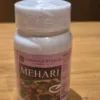Ayurvedic Treatment for Kidney Diseases
The kidneys are two bean-shaped organs. Each kidney is about the size of a fist. Your kidneys filter extra water and wastes out of your blood and make urine. ‘Kidney Disease’ means your kidneys are damaged and can’t filter blood the way they should.
You are at greater risk for kidney disease if you have diabetes or high blood pressure. If you experience kidney failure, treatments include kidney transplants or dialysis. Other kidney problems include acute kidney injury, kidney cysts, kidney stones, kidney infections, etc.
Nowadays, kidney dialysis and kidney transplants are the common solutions, patients take in their later stages with the main goal of treatment relieving symptoms, preventing complications, and delaying kidney damage.
A kidney transplant is done from a matching donor and at times the body may reject the replaced kidney, followed by another transplant dialysis, which is risky and creates chances of developing a kidney infection, both are risky and expensive procedure and doesn’t fix the disease.
Types of Kidney Disease ….
- Acute Kidney Disease- Sudden Failure to Kidney Functions, Serious condition and mainly occurs during the last stage of the Disease or during the time of treatment.
- Chronic Kidney Disease– A slowly progressive problem in the kidneys that takes time to advance to a later stage.
- Nephrotic Syndrome- Damage to the filtering units of the kidneys which leads to the excessive loss of proteins from the body.
- Polycystic Kidney Disease– Genetic condition which leads to the formation of a cyst in the kidneys.
- Kidney stones– Hard deposits of minerals and acid salts that stick together in concentrated urine.
Etiology of Kidney Disease:
We know there are many types of kidney disorder in the human body and some important condition is mentioned above, most common medical condition in the kidney is renal calculus formation (kidney stone, either one or both side, sometimes stone moved in the ureter with excruciating pain) and the most complicated condition is termed as ESRD( End Stage Renal Disease), means kidney function failure.
Some certain factors are:
- Diabetes Mellitus is the major cause because of the non-usage of insulin hormone right away by the kidney
- High Blood Pressure is, the second leading cause
- Glomerulonephritis is a type of kidney disease in which the glomeruli are damaged and cannot remove waste and fluid as they should.
- Lupus Nephritis is a medical name for kidney swelling and irritation that is caused by lupus. Lupus is an autoimmune disease.
- Minimal Change Disease is a kidney disorder that can lead to nephrotic syndrome, it is a group of symptoms that include protein in the urine, low blood protein levels in the blood, high cholesterol levels, high triglyceride levels, and swelling.
Sign & Symptoms
Kidney disease usually gets worse slowly, and symptoms may not appear until your kidneys are badly damaged. In the late stages of kidney disease, as you are nearing kidney failure, you may notice symptoms that are caused by waste and extra fluid building up in your body.
- Itching
- Muscles Cramps
- Nausea
- Vomiting
- Collection of fluid in Lungs
- Anaemia
- Body Swelling
Ayurvedic Concept with Management
In Ayurveda literature, Chronic Kidney Disease (CKD), is described as a ‘Mootra Dosh Vikara’ and causes Oedema (Swollen Body parts). Both Kidney is the root of ‘Medovaha shorts.
Mutra Dosha Vikara- ‘Mootra dosha Vikara’ means ‘Urinary disorder’
Medovah Srotas – means ‘Channels of Adipose Tissue’
According to Ayurveda, the causes of Mootra dosha vikara are the Doshas(Body Humour i.e. Vata, Pitta, and Kapha) vitiated by the intake of drinks and food, Sexual Intercourse while having the urge for Micturition, and suppression of the urge of micturition, disorders of wasting or malnutrition and severe traumatic injury.
In general, the disease is caused by the blockage of minute body channels called ‘Srotas’. The body channels involved in this case, known as ‘Mutravaha Srotas’, carry urine and are responsible for the flow of liquid into and out of the kidneys
If there are blockages in the incoming ‘Srotas’, the kidneys are denied fluids and Shrinkage occurs and if the outgoing channels are blocked, Swelling occurs.
Pranava Kerala Ayurveda Clinic Doctors aim at strengthening the kidneys, restoring their filtration capacity, and general functioning of the kidneys and they suggest very effective Ayurvedic herbs, such as Punanarva (Boerhavia Diffusa) that can clean these channels and reduce swelling and rejuvenate the kidney.
Kidney diseases are treated in Pranava Kerala Ayurveda Clinic with the help of repairing and Nourishing the Nephrons with Herbals and mineral Medicine like Tankan Bhashma and Praval. The main treatment is-
Shodhana Therapy (Cleansing Method),
Panchakarma therapies (Five actions or Five Unique Treatment of Ayurveda, Herbal Diuretics, Abhyanga – Massage,
Kizhi- Herbal Pouch Application,
Sirodhara – Poring medicated liquid over the head.
Pranava Kerala Ayurveda Clinic provide proper screening of Patient and advice lifestyle tips to prevent the progress of the disease
Controlling blood pressure, blood sugar level, cholesterol level, body weight, smoking, and alcohol consumption are important to avoid kidney damage.
To restrict sodium intake, salt is minimized from the diet. So, avoiding salty food articles like seafood, wafers, etc is necessary.
Potassium intake is regulated in kidney failure and so low potassium-containing food sources like carrots, cabbage, apples, etc are preferred.
Protein intake to is regulated and low protein sources like cereals, vegetables, and fruits are recommended.
Fatty, oily, and fried foods are avoided.
To find out more about how Ayurveda can help with the above condition, visit Pranava Kerala Ayurveda Clinic or call 0208 907 7902 to book an appointment with an expert Ayurvedic Practitioner.
Medical Advice Disclaimer
DISCLAIMER: THIS WEBSITE DOES NOT PROVIDE MEDICAL ADVICE
The information, including but not limited to, text, graphics, images and other material contained on this website are for informational purposes only. No material on this site is intended to be a substitute for professional medical advice, diagnosis, or treatment. Always seek the advice of your physician or other qualified healthcare providers with any questions you may have regarding a medical condition or treatment and before undertaking a new health care regimen, and never disregard professional medical advice or delay in seeking it because of something you have read on this website.




